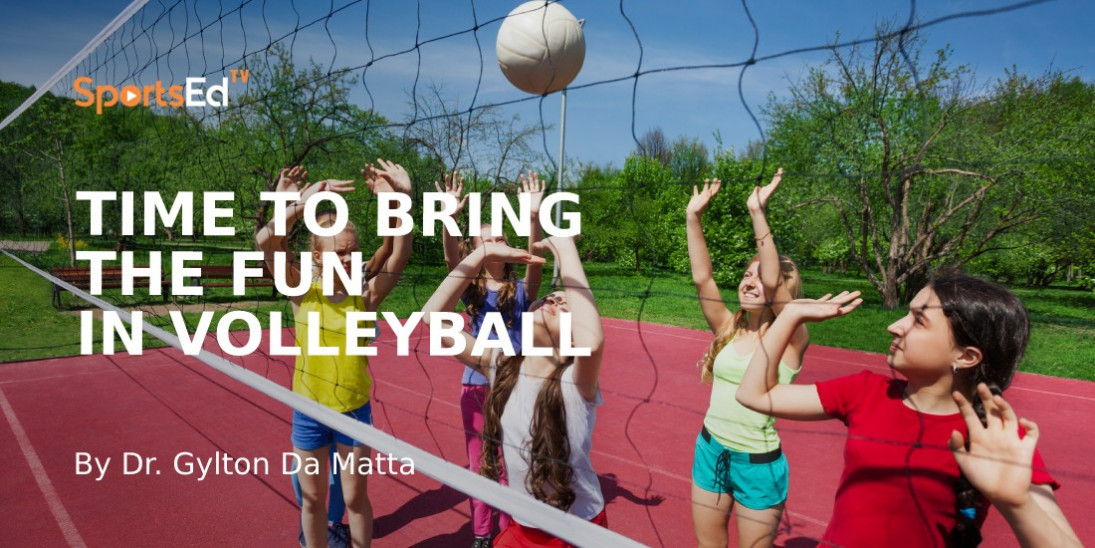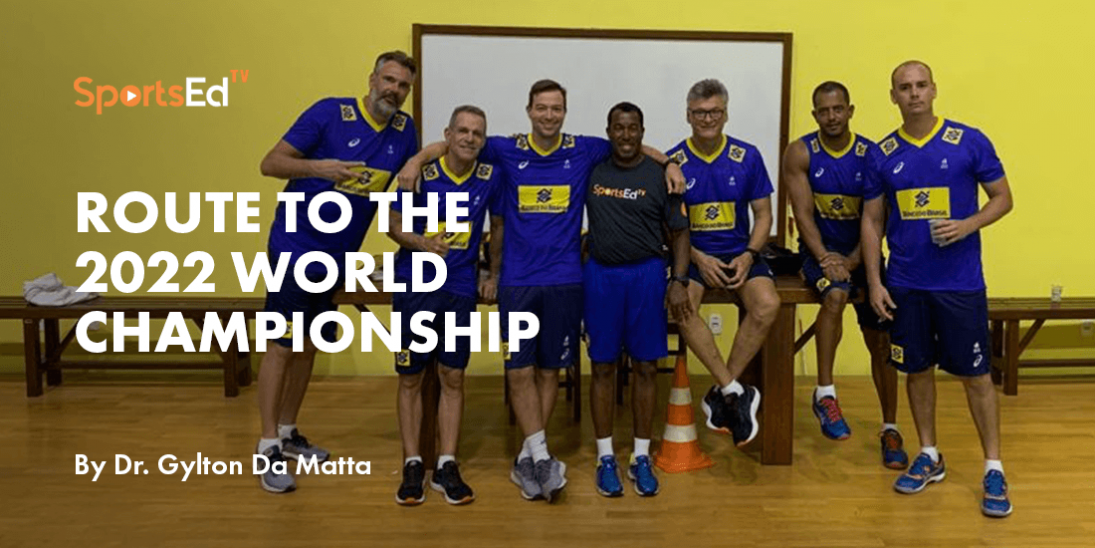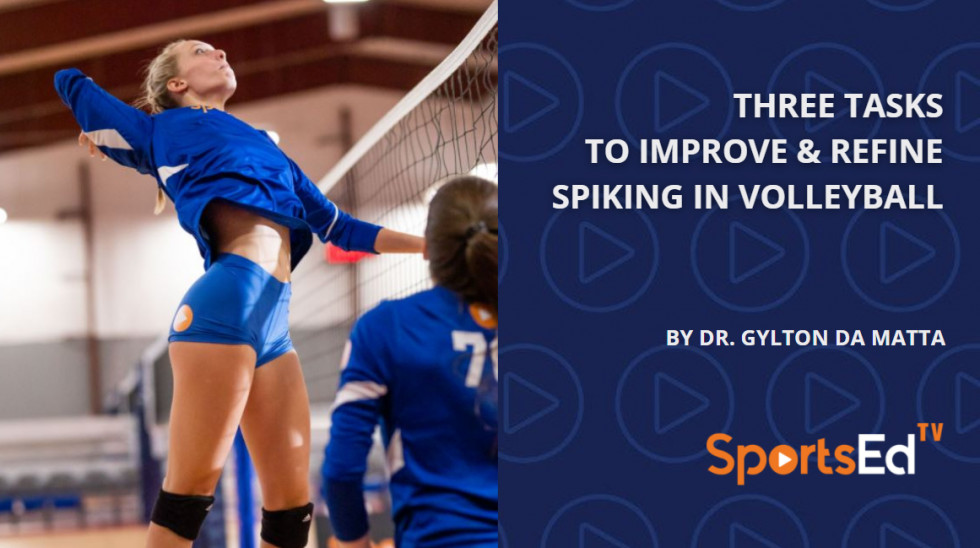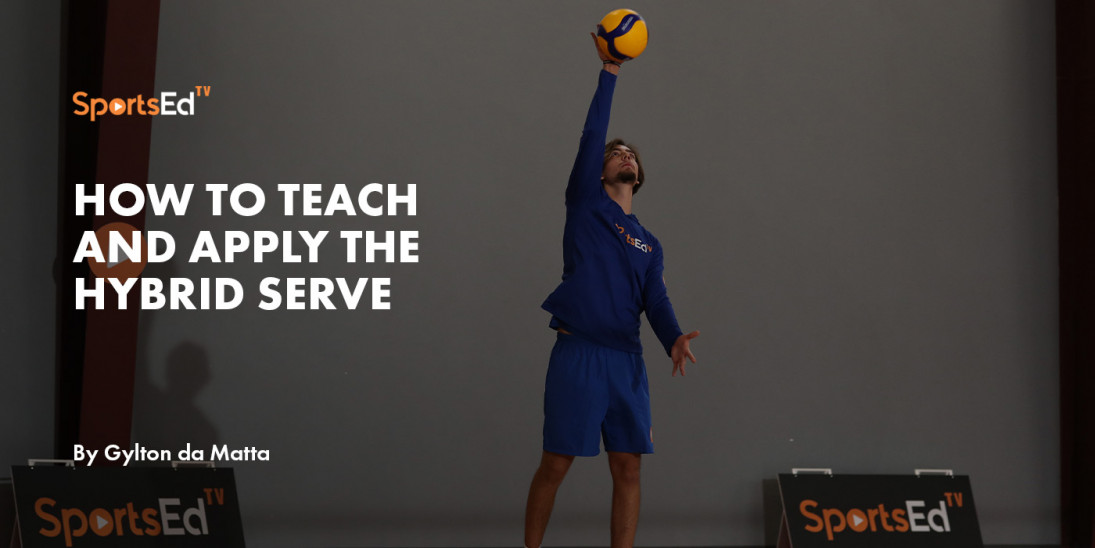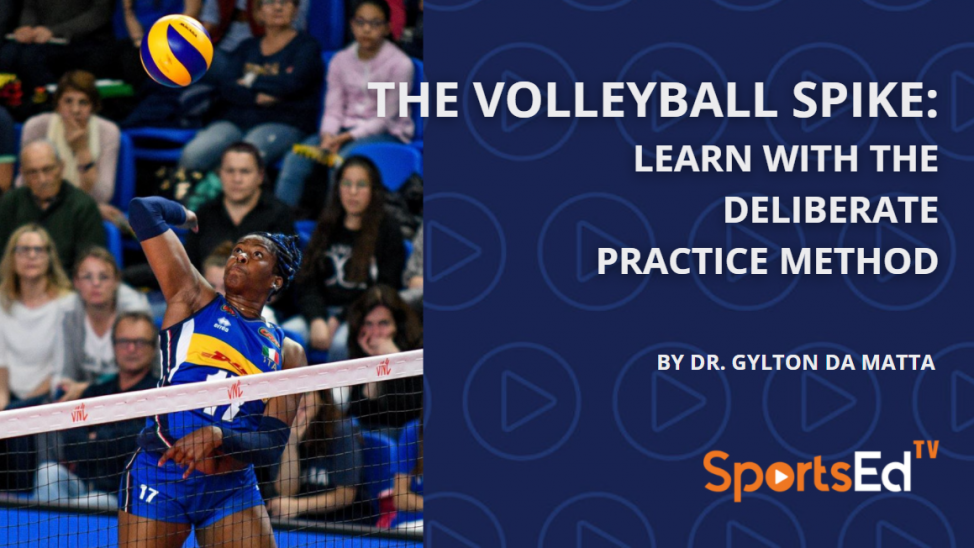Volleyball
Welcome and thanks for visiting...

In Search of Excellence in Coaching Volleyball.
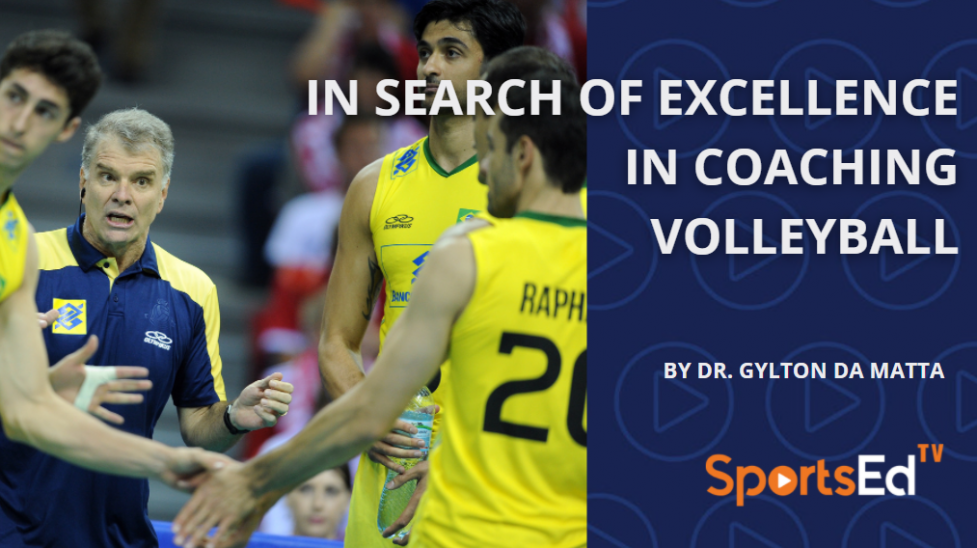
Not all volleyball coaches are created equal!
Volleyball coaches as leaders of a team, need to acquire the pedagogical knowledge, procedural knowledge, and the precise way that athletes learn each volleyball skill. Coaching is about how to present a simple to complex volleyball task so athletes can practice, execute, and rehearse. Another important aspect in coaching is the understanding of when and how to give visual feedback, group or individual feedback.
Coach Lee, an expert High School coach, talks about how to maximize practice and how athletes need to be attentive to specific feedback. Coach Lee explains to the players that they need to understand the importance of coaches ‘demonstration, the amount of feedback, and know how to engage (being on task) optimizing the quality and amount of practice, so learning can occur without saturation nor injuries.
Designing effective task presentations, extension, refinements, and application is a science supported by the Theory of ALT or Amount of Learning Time. All physical educators trained in sports pedagogy know how and when to give feedback and at what rate. But not all coaches have the training and certification as physical education teachers. Sometimes, expert coaches recruit top skillful players to be part of their coaching staff. Modern management implies being resourceful when recruiting your coaching staff.
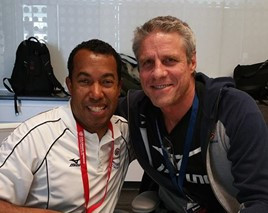
One of the best Coaches in the Women’s Category, Karch Kiraly used the Socratic approach to give feedback to his elite players in the USA. The women’s USA has just won the FIVB Nations Volleyball League (NVL) and is heading to Tokyo in 2021 as a contender for the Gold medal.
There are just feel coaches (normally those with a coaching certification in PE), who truly understand that sports coaching is a science of teaching motor skills. Thus, applying the motor learning principles such as using a back wise progression or adjusting the sequencing and the patterning/ distribution of tasks in a logical order, truly helps learners in a direct relationship. The more skillful the coach is in applying motor learning principles more proficient and more efficient the players will be. The same is true with the coaches' level of expertise. The more trained, mentored, and supervised the coachers more effective they will be to teach volleyball at any level.
Coaches’ expertise development is much needed.
In a volleyball camp in Alabama, we had more than 8 coaches doing all the teaching tasks and rehearsing all volleyball progressions to become better coaches and better demonstrators. In order words, they were all learning how to teach volleyball skills! Coaches' humility is expressed through the coach's dedication to lead by example. One of the coaches was Laura Boozer, now, Coach Wentzky. Laura attended the camp as a junior coach assigned to demonstrate the skills as a middle player during the position-specific days of our camp. We had a Master Coach and a specialized coach for each volleyball position. I was the Master Coach, Coach Juntaro Noda (JPN) was the libero coach, Coach Lee was the outside hitter’s coach, Coach Chad (THA) was the setter’s coach and Coach Wentzky was the middle player’s coach. We were so happy that Laura attended that camp because we had four coaches to model for each position in the game and with her help, we were able to play coaches versus all campers’ team and we won!
Coach Lee and I used a term called deliberate practice for coaches and players, with the feedforward approach. That means that in volleyball coaches need to practice their skills as well as the players. If you don’t use it, you lose it! Therefore, we have always advocate deliberate practice for coaches using feedforward. Feedforward, teaching the correct form ahead, in my opinion, has turned out to be more significant for learning than feedback, both for coaches and also for players. When we were coaching in our camps, practices, and clinics Laura was always shadowing our gestures and always doing her own "invisible training". She became one of the best volleyball players at Clemson University and then she became an awesome volleyball coach.
A.C. Flora Athletics would like to thank Coach Laura Wentzky for her service as Head Volleyball Coach. During her tenure, our program won back-to-back region championships and reached the state quarterfinals- both of which were firsts in our school history. She was twice named Region Coach of the Year and served as a coach in the 2017 North-South All-Star game. As she steps aside to focus on her family, we are very grateful for all her contributions to our Community of Champions.
(Falcon New, Jan 11, 2018)
We strongly believe with proper methodology; it is possible to teach a skill correctly from the get to go. But, if volleyball wants to be the best family sport for the 21st Century, those who want the sport to grow must focus on technical expertise for coaches to facilitate the expertise development of their players. In my opinion, this is a critical element! Expert coaches develop expert players and expert players become new expert coaches!
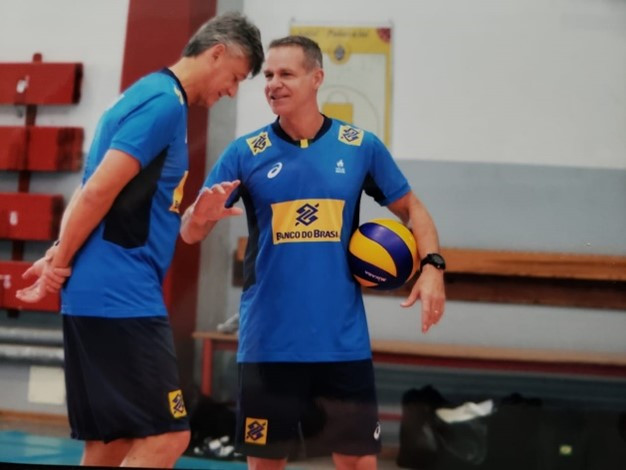
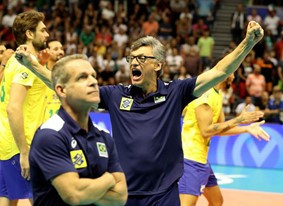
When coaches work very hard and smart in practice, coaching on court assumes a different dimension. Here Prof. Renan Dal Zotto with his Assistant, Prof. Ricardo Tabach discussing the Brazilian Volleyball team. Prof. Renan contracted COVID and was on a ventilator for more than two weeks. From a distance, and assisted by Prof. Shwanke, the Brazilian Men’s team won the FIVB NVL 2021 and is heading to Tokyo Olympic Games. The Men's team of Brazil is also a contender for the Gold medal. We wish a full and fast recovery to Head Coach Renan Zotto.
The volleyball coach as an expert teacher knows that maximizing practice means repeating the skills through distinct extensions with the use of refinements and with fun applications that can happen through a contest or a modified game. But above all, the coach (like Chee Lee) knows about the science of motor learning and the key role the mirror neurons exert in the observation, empathy, reflection, imitation, and fine motor skill acquisition (Da Matta, 2004). In sports, volleyball athletes learn by doing! They can practice with or without a ball. Paying close attention to details is important but doing the movements, kinesthetically and mimicking the task at hand is extra overt practice.
Please do not take me wrong, mental training is very good but the fact that athletes are rehearsing the meaningful movement tasks is better than laying down and “thinking” about their practices.
In my studies, the amount of cumulative practice determines the level of expertise of players. Similarly, volleyball club players must understand the importance of practicing, repeating, rehearsing, and executing the learning tasks with an exactness of reference and with quality. In this video, we have an example of Prof. Chee Lee, who is a Master Coach of volleyball and a Physical Education Teacher in Osaka, Japan. Notice, how Coach Lee demonstrates "how to practice" and he also explains how volleyball players can acquire the finest volleyball skills.
In the Deliberate Practice Volleyball Method, the role of coaches is critical to athletes’ success. The learning process of complex volleyball skills relies on the level of coaches’ demonstrations. Volleyball players learn by observing and watching the technique of their coaches (Da Matta, 2021).
The purpose of the Volleyball Deliberate Practice is to create a system of training advanced club-level volleyball players and prepare them to be the best they can be at the level of their choice which can be scholastic, university, professional, and/or Olympic levels. In this case, we also include playing volleyball for a lifetime as a smart choice considering that many elite players when detached never play sports again. Fortunately, this rarely ever happens with volleyball because of high-caliber coaches, like Chee Lee!
For this reason, back in the day, Coach Chee Lee, and I always do coaches’ clinics teaching coaches proper form and proper coaching pedagogical mannerisms! We needed to develop coaches for our volleyball club that today has 32 volleyball teams.
Expert coaches’ gestures and tasks are teaching procedures that shape volleyball coaches as models for their pupils. I call them volleyball role model tasks. These tasks are designed to maximize learning and increase the capacity of performance of volleyball players who are learning every day by watching their coaches (and their peers!) Club volleyball can increase its level of efficiency if all participants learn how expert players acquire top volleyball skills. Therefore, the coach and each player become a facilitator of learning by eliciting proper form.
In 1996, I was introduced to USA Club. I attended the Big South, the Baltimore USA Volleyball Qualifiers, and the Tampa Volleyball tournaments. I also attended the big beach volleyball tournaments in Texas, California, and Florida. As an ethnographer, through systematic observation, I noticed that volleyball players resembled their coaches. I saw in plain sight, how the same idiosyncrasies and technical nuances demonstrated by players were related to coaches' techniques and their motor behavior. In the Deliberate Practice Volleyball Method, being a “role model” is not only a moral imperative, but also a process to model technical expertise that can lead to teaching all athletes finesse, efficiency, accuracy, and expertise in volleyball. This could be a great empirical study!
Quality coaching matters!!!
You can see all of this with your own eyes, Deliberate Practice requires coaches to be mindful of this reality. The mirror neurons will pick up every piece of information in the practice environment. Therefore, players need to learn how to practice, and coaches represent the conduit of a powerful source of information to their athletes in multiple dimensions. How can coaches shape their athletes so coaches can be role models? Technical demonstration, idiosyncrasies, jokes, mannerisms, and good gestures of what good form and appropriate behavior are, will emulate what players will learn and to which degree players will be able to perform. I mean in the technical development aspect, in the social affective domain, and also in the cognitive domain. In my new book 21st Century Volleyball Expertise, I explain more about the role of coaches in the expertise development process of top players in the world.
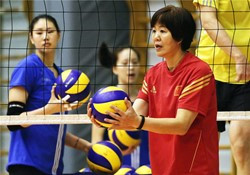
Former USA Women's Head Coach, Mrs. Lang Ping was one of the best players in the world in the mid-'90s, and today, Gold medalist in Rio 2016, she is one of the worldly renowned women's volleyball coaches.
In volleyball quality coaching is a factor…Coaching matters!
Like Coach Lee, volleyball coaches must be great teachers and outstanding demonstrators of basic and advanced skills. To be or not to be? Coaches’ quantum, that is the question! What are the main features or characteristics of a great volleyball coach? Food for thought…coaches profile relies on good demeanor, being groomed, being in shape, being classy, and above all possessing great volleyball skills. These characteristics represent the scientific findings and the volleyball code of ethics. All of these have been tested and recommended by some of the top 12 expert volleyball coaches in the world.
If you want to know that you do not have an “impostor” teaching your athletes just ask your coaches to set a volleyball, perform a spike arm swing or simply hold a volleyball. Fake coaches can manipulate people with their conversation but cannot hide their lack of skills. In many cases, they will even avoid getting close to the volleyball because they have never played, taught, and engaged in becoming a true volleyball coach! Body language does not lie! You can see a true volleyball coach by the way he/she addresses players with kindness, through their skillful way to touch the volleyball, and through their teaching ability by demonstrating a volleyball skill. If a volleyball coach does not have proper footwork, little setting or passing skills, or does not know how to demonstrate a teaching task, he/she must learn it.
In 2012, and 2013, I was hired as a master coach for the Brazilian Volleyball Confederation. At that time, they have a project called Tecnico de Referencia, in English “reference coach”. This whole project involved 600 top coaches in Brazil who reached more than 3,000 and then 9,000 coaches. Prof. Imai and I went to the Center of Volleyball Development in Saquarema (Brazilian Volleyball Olympic Training Center) and for a week, we (all top 80 coaches present) defined “what good technique is” and we created instructional models for coaches and rubrics of assessment and observations for players. Then, the coaches went back to their states and provinces, and they did the same clinics at their regions and then reference coaches from regions reached every city that had a volleyball club in Brazil. One of my friends and Supervisor of the Brazilian Confederation, Jorge Barros said during a social at the local pub:
“_ We are happy that CBV has chosen you to be an instructor! As you know, you are very short… although you are so short, your technical skills are still one of the best Gylton!” I replied: “I thought, you called me because of my charm!?” Jorjao re-replied: “_ Well maybe because of it…but your volleyball research is not too bad!” Everyone laughed!
Jorjao was twice a silver medalist in the 1984 and 1988 Olympics and one of the most technical-oriented coaches of Brazil. The naked truth conversation at the pub was another masterful coaching conference. The many jokes and loose atmosphere revealed many other truths about the resilience of the Brazilian volleyball coaching style.
Conclusion: Quantum & Qualys
Coaches need to learn how to do, demonstrate and model (perform) volleyball skills very well. Quality and quantity matter in coaching. Volleyball coaches need to possess many teaching skills and also need to demonstrate a high-quality standard of volleyball technique. The nature of fine motor skills in volleyball is closely compared with the skills of violinists and piano players. Therefore, in volleyball coaches must be outstanding performers as conductors. Conductors might not be the best violinists, but they need to know how to play a huge array of instruments to be the leader of the orchestra.
Children learn by doing, through observation, and by imitating, primarily, their coaches! Athletes deserve the best instructors. If the coach lacks skills, their players will also lack skills and perform similarly to their coaches. In fact, throughout one season alone, players will execute their technical skills very similar to how their coaches do. For this reason, volleyball club directors need to hire elite, expert teachers, multicultural and coaches who know how to demonstrate, how to present a motor task, and how to teach motor skills from a pedagogical and neuroscience standpoint.
Coach Lee thanks for your dedication to psychomotor, physical, and kinesthetic performances!

